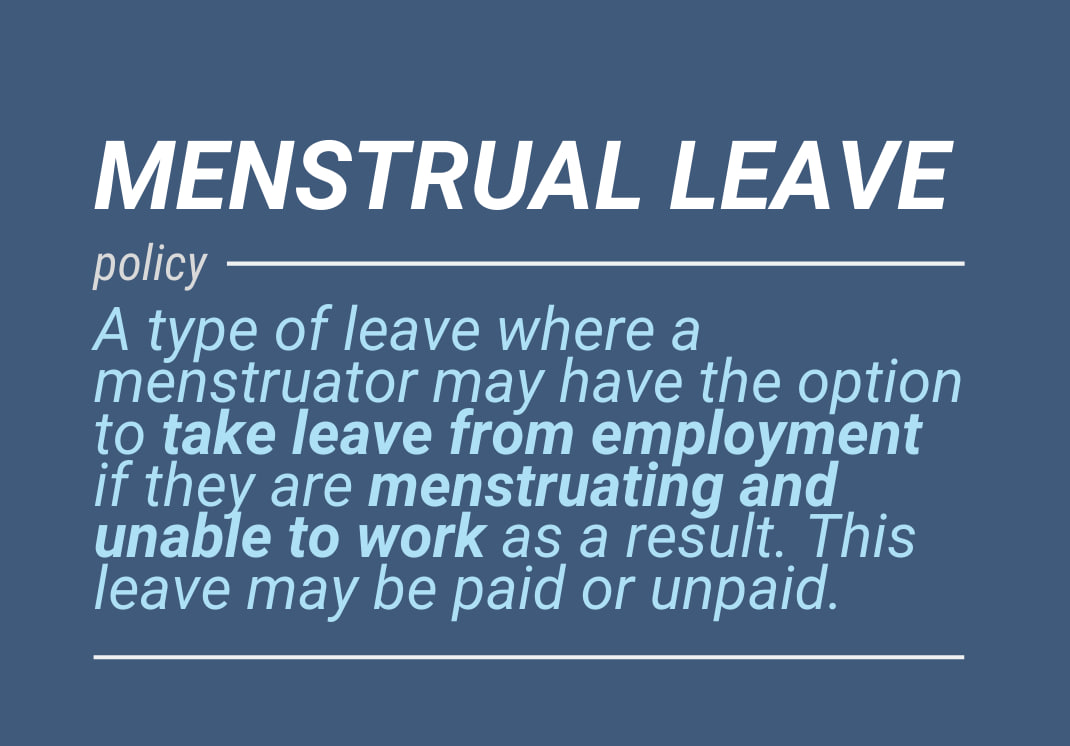Description

Copyright infringement not intended
Context: The Supreme Court of India while hearing a petition on menstrual leave has asked the petitioner to approach the Ministry of Women and Child Development to frame a policy.
Details about the Petition
- The Petitioner requested the Supreme Court to issue a direction to the government to frame rules for granting menstrual pain leave for students and working women under Section 14 of the Maternity Benefit Act, 1961.
- Section 14 deals with the appointment of inspectors.
- It says that appropriate governments may appoint such officers and may define the local limits of jurisdiction within which they shall exercise their functions under this law.
- The Petitioner highlighted that countries like the United Kingdom, China, Wales, Japan, Taiwan, Indonesia, South Korea, Spain and Zambia are already providing menstrual pain leave in one form or the other.
- The Petitioner stated that the various provisions of the 1961 Act acknowledge and respect the motherhood and maternity of working women.
- Despite several provisions under different laws and policies to take care of women in difficult stages of her maternity, the very first stage of maternity, the menstrual period, has been knowingly or unknowingly ignored by society, the legislature and other stakeholders in society except for a few organizations and State governments.
- Bihar and Kerala are the only States that allow menstrual pain leave.
.jpeg)
Union Government Stand
- The Union Minister for Women and Child Development stated that the Central Civil Services (Leave) Rules, 1972, applicable to Central government employees, do not have provisions for menstrual leave, and currently, there is no proposal being examined to include such leave in the rules.
- The Union Minister highlighted various types of leave available to women government employees under service rules, such as earned leave, half-pay leave, extraordinary leave, child care leave, commuted leave, maternity leave, leave on medical certificate and leave not due.
Key Observations made by the Court
- A three judge Bench led by the Chief Justice of India (CJI) stated that there are different “dimensions” to menstrual pain leave, which is a biological process, but it may also act as a “disincentive” for employers from hiring women in their organisations.
- The Court highlighted that if it is made mandatory for employers to grant menstrual pain leave, it may act as a disincentive for employers to engage women in their establishments”.
- The Court mentioned that menstruation is a biological process and women should not be discriminated against in educational institutions and workplaces.
- The court said that there are different dimensions to the issue, and we will leave it to the government to study the matter in detail and frame policy.
Significance of Menstrual Leave Policy
- As an increasing number of states and countries around the world move to recognize and protect the rights of women to menstrual leave, it is important to understand the implications of such policies.
- These policies allow employees to take a few days off during their cycle when they need it, and employers are making sure that these policies are well known throughout the workplace.
- This is an important step in recognizing that everyone's health needs should be taken into consideration in the workplace and providing them with the resources to take care of themselves.
- It is also an important part of creating an inclusive atmosphere where everyone feels comfortable bringing up their health needs and being open about their menstrual cycles.
- Menstrual leave is not just a matter of personal comfort; when women are provided with the space and time to address their unique needs during their cycle, they are more likely to remain in their jobs, freeing up resources for employers in terms of time and money.
- Menstrual leave policies can create more equitable workplaces and foster a culture of respect and understanding among members of the organization. Employers must recognize the importance of such policies and work to ensure that they are implemented fairly and equitably.
- Menstrual leave policies can offer companies the opportunity to ensure that their staff is given the time and support they need, while also allowing for greater flexibility and equality in the workplace.
- By recognizing the unique challenges faced by women during menstruation and providing an appropriate policy, employers can create a more inclusive and supportive work atmosphere for their whole team.

Conclusion:
- A menstrual leave policy (MLP) is a policy that allows employees to take time off from work to take care of their physical and mental health during their menstrual cycle.
- This type of policy recognizes that there are biological conditions associated with menstruation and acknowledges that the employee needs extra time to care for themselves during this period.
- This policy is an effort to bring the workplace to a more inclusive and understanding environment.
- Menstrual leave is an important part of creating a safe and equitable workplace for all genders, and it must be recognized as an integral part of the policies.


https://epaper.thehindu.com/ccidist-ws/th/th_delhi/issues/26408/OPS/GFIATU02F.1.png?cropFromPage=true















